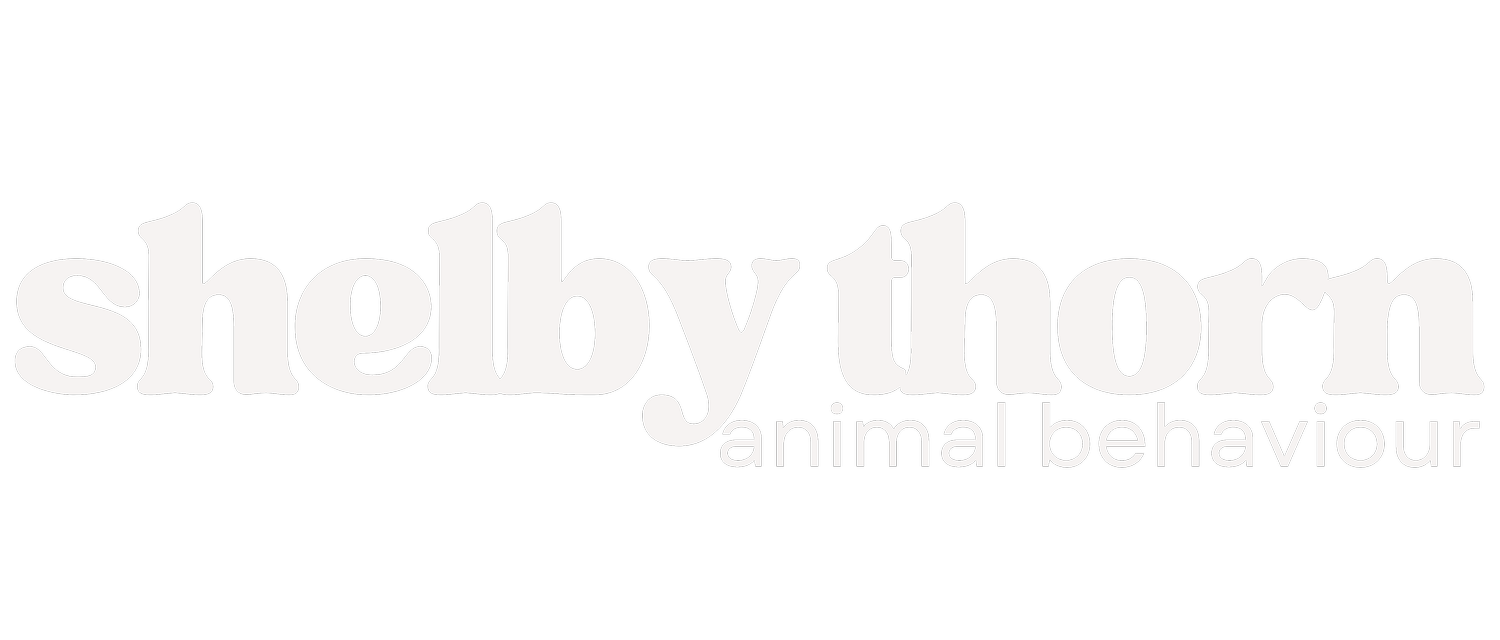The True Power Struggle: Debunking Dominance
You’ve likely heard that your dog is trying to be the "Alpha" or "Boss" of the household—especially if they show behaviours like aggression, mounting, or guarding resources. The truth is, dominance theory, which suggests dogs are aiming to take charge like the "alpha wolf," is outdated and misleading. Let’s dive in and clear things up!
The concept of dominance theory originated from studies in the 1940s by researcher Rudolf Schenkel, who observed captive wolves and concluded that they formed strict hierarchies, with one "alpha" wolf in charge. However, these observations were made from wolves in unnatural, captive conditions—meaning they couldn’t behave the way they would in the wild normally. Additionally, Schenkel’s study focused on wolves and not domestic dogs, who are a different species with their own unique social structures, so applying these findings to our domestic dogs simply doesn’t hold up!
Fast forward to today, and Dr. David Mech, the scientist who coined the "alpha wolf" idea, has retracted his support. He clarified that wild wolves do not form pack structures. Similarly, dogs don’t follow a strict "dominance hierarchy" but rather work together in companion groups. Your dog is not trying to overthrow your leadership—they’re simply responding to their environment, and studies on the socialisation of domestic dogs are showing results such as these time and time again, continuously debunking dominance theory in domestic dogs.
So, what’s behind some behaviours mistakenly seen as "dominance"?
Aggression is typically a sign of fear, anxiety, or a desire to protect something important. It’s rarely about trying to "rule" but more about feeling worried. Resource guarding—protecting food, toys, or space—is driven by stress, not a desire to control the household. It’s rooted in fear, not dominance. Mounting or humping is more likely a response to excitement or stress, not a display of dominance.
Why is this so important for dog owners to understand?
The problem with dominance theory is that it promotes harsh training methods such as punishment, which can cause fear, confusion, and harm to the relationship between you and your dog. Misunderstanding behaviours associated with dominance can lead to psychological and physical distress such as learned helplessness or escalate aggression use. As modern pet professionals, we know dogs are more complex than the old "alpha" theory suggests. The Australian Veterinary Association (AVA) and the Pet Professional Guild (PPGA) both stress that "dominating" your dog is not the answer. Instead, understanding your dog’s behaviours and triggers, as well as using up-to-date, evidence-based training techniques leads to healthier, happier dogs and better behaviour.
The idea that your dog is trying to become the "Alpha" is a myth. Instead of focusing on outdated dominance concepts, take the time to understand your dog’s behaviours and use positive, modern training methods. Your dog isn’t trying to rule the roost—they just want to be understood and part of the family!

